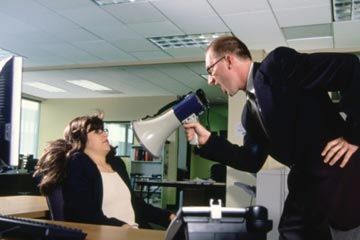Japanese writer Ryunosuke Satoro once said, "Individually, we are one drop. Together, we are an ocean" [source: Gschwandtner]. This beautiful metaphor describes a very simple and practical idea: By working together, people can accomplish far more than they could alone. It's a sentiment increasingly being shared by the corporate world.
Teamwork has become an integral part of the modern workplace. No longer are companies sticking to the old-fashioned hierarchical structure. They realize that their staff can be more productive when they work together. Studies confirm this idea, finding that teamwork improves innovation, enhances problem-solving and boosts productivity [sources: Stanford Graduate School of Business, Journal of Managerial Issues].
Advertisement
As another saying goes, "There's no 'I' in 'team.'" Teamwork requires collaboration. It involves a group of people who bring together their different skills, ideas and work styles for a common goal. Yet teamwork doesn't mean that individuals have to set aside their personal goals for the good of the group. The best teams enhance each person's abilities and encourage all members to grow personally and professionally. Team members support one another through challenging tasks and difficult periods.
As rewarding as the team approach can be to both corporations and employees, fostering a team environment can be challenging, especially in a culture that places a high emphasis on individual performance and competition. As economist Lester Thurow put it, "In America, halls of fame exist for almost every conceivable activity, but nowhere do Americans raise monuments in praise of teamwork" [source: Osborn].
If you do want to try a team approach in your office, there are a few best practices to help you make it work. This article will show you how to build effective teams, combine the right mix of people to reach your goals and deal with team conflicts as they arise.
Advertisement





